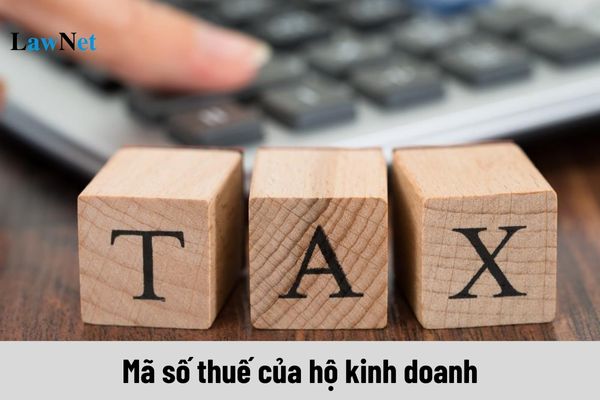What documents are required for the TIN deactivation of a household business in Vietnam?
What documents are required for the TIN deactivation of a household business in Vietnam?
According to Clause 4, Article 39 of the Law on Tax Administration 2019 and Point c, Clause 1, Article 14 of Circular 105/2020/TT-BTC, the application for the TIN deactivation of a household business in Vietnam must include the following documents:
- Written request for TIN deactivation - Form No. 24/DK-TCT issued together with Circular 105/2020/TT-BTC according to the provisions of Article 38, Article 39 of the Law on Tax Administration 2019.
- Copy of the decision to revoke the Business Registration Certificate (if any) for a household business; the business location of the household business according to Point i, Clause 2, Article 4 of the Circular 105/2020/TT-BTC.

What documents are required for the TIN deactivation of a household business in Vietnam? (Image from the Internet)
What are the obligations of a household business in Vietnam before TIN deactivation?
Under Clauses 2 and 3, Article 15 of the Circular 105/2020/TT-BTC, for a household business before TIN deactivation in the cases, the following specific obligations must be fulfilled:
For household businesses engaged in the production, business of goods, and services per Point i, Clause 2, Article 4 of Circular 105/2020/TT-BTC:
(i) Submit invoice usage reports in accordance with the law on invoices if invoices are used.
(ii) In the case where the household business pays tax according to the fixed tax method, it must fulfill its tax obligations and handle surplus tax payments under Articles 60, 67, 69, 70, 71 of the Law on Tax Administration 2019 with the tax administration agency.
(iii) In the case where the household business pays tax according to the declaration method, it must fulfill its tax declaration and payment obligations and handle surplus tax payments and uncredited value-added tax (if any) in accordance with Articles 43, 44, 47, 60, 67, 68, 70, 71 of the Law on Tax Administration 2019 with the tax administration agency.
For household businesses transitioning to small and medium enterprises:
For household businesses transitioning to small and medium enterprises according to the Law on Support for Small and Medium Enterprises 2017, the household business must fulfill its tax obligations with the directly managing tax authority or send a written commitment to the tax authority that the small and medium enterprise converting from the household business inherits all tax obligations of the household business by the law on support for small and medium enterprises.
What are the principles for the TIN deactivation in Vietnam?
According to Clause 3, Article 39 of the Law on Tax Administration 2019, the principles for the TIN deactivation in the cases include the following contents:
(i) The TIN is not to be used in economic transactions from the date the tax authority announces its deactivation.
(ii) The TIN of an organization after deactivation cannot be reused, except as specified in Article 40 of the Law on Tax Administration 2019.
(iii) When the TIN of a household business or individual business is deactivated, the TIN of the household business representative is not deactivated and is used to perform other tax obligations of the individual.
(iv) When enterprises, economic organizations, other organizations, and individuals terminate their TINs, they must simultaneously terminate the TIN used for substitution.
(v) When the parent tax reporting entity terminates its TIN, all dependent units must also have their TINs deactivated.
What are the cases of reactivation of the TIN of a household business in Vietnam?
According to Article 40 of the Law on Tax Administration 2019:
TIN reactivation
1. TINs of taxpayers who combine taxpayer registration with business registration shall be reactivated together with as their legal status is reactivated.
2. For taxpayers directly registered with tax authorities, the application for TIN reactivation shall be submitted to their supervisory tax authorities in the following cases:
c) The competent authority revokes the decision on revocation of business registration certificate or equivalent license;
b) The taxpayer wishes to resume their business operations after the TIN deactivation application has been sent to the tax authority, but the tax authority has yet to issue a notification on TIN deactivation;
c) The tax authority has issued an announcement that the taxpayer does not have business operation at the registered address but has not revoked the licence or deactivated the TIN.
...
Taxpayers who are household businesses can register directly with the tax authority to apply the TIN reactivation in the following cases:
- Upon the competent authority's issuance of a document canceling the document revoking the business registration certificate or equivalent license;
- When intending to resume business activities after having submitted a dossier for the TIN deactivation to the tax authority but before the tax authority has issued a deactivation notice;
- When the tax authority issues a notice that the taxpayer is not operating at the registered address, but the license has not been revoked and the TIN has not been deactivated.

